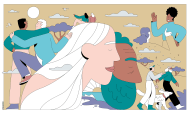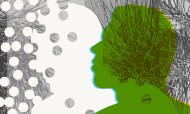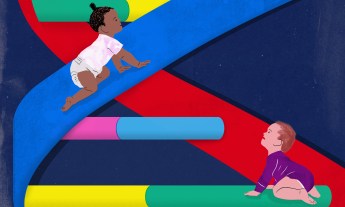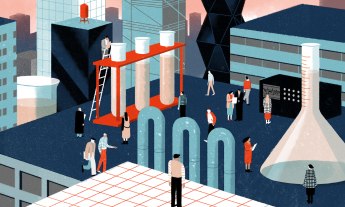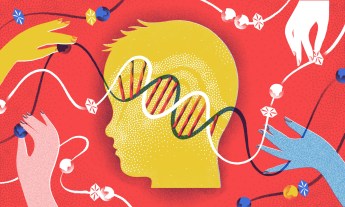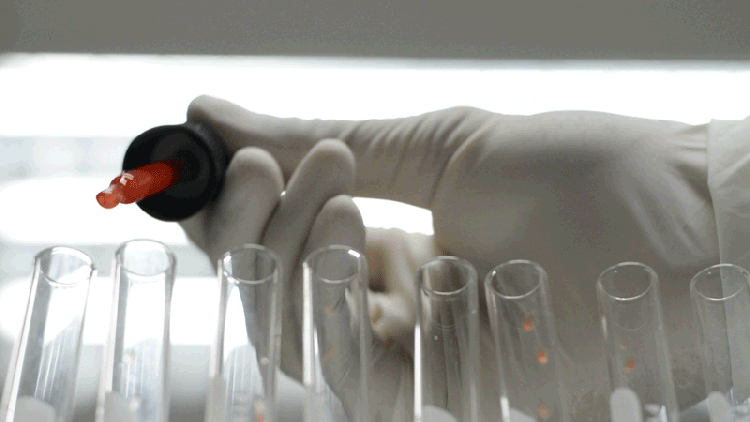
Should parents be able to select their children’s talents and personalities? Whatever your opinion, it is precisely the kind of question that Julian Savulescu wants you to take seriously. A professor of practical ethics at the University of Oxford, Savulescu thinks deeply about the ethics of the biological enhancement of the human race.
In his view, not only should you stop fearing such changes, you should consider them for yourself. In fact, he argues, you may even have an ethical responsibility to genetically modify your children.
We got on the phone to discuss his thinking. Below is an edited version of our conversation, in which topics ranged from the limits of human nature to eugenics to inequality and genetically enhanced monkey-slaves. Obviously.
You advocate that, as a species, we have a moral obligation to enhance ourselves biologically. Why is that?
Humans have a lot of limitations. We have limitations in terms of aging, we have cognitive limitations, various physical limitations, and of course moral limitations. When science offers us the opportunity to overcome these limitations, we should ask the ethical question: “should we?” In some cases we shouldn’t, but in many cases we have a moral obligation to overcome those limitations.
One trivial example: about a billion IQ points are lost around the world each year because salt isn’t iodized. If you’re pregnant and have insufficient iodine, your fetus might lose 10 to 15 IQ points. You may still be “normal” — but it only costs 2-3¢ per person per year to iodize salt. We have an enormous moral obligation to do that because of the value of cognitive ability.
We also have a moral obligation to overcome our moral limitations. People evolved to form groups of about 150. They care about their tribal group, and they tend to be violent to or derogate out-of-group members. They are altruistic to their friends and family, but much less so to other people. They free-ride. They think in the near term. All of these are essentially features built into our psychology.
We’re far from perfect. We’ll never be perfect, but when science offers us the opportunity to understand those limitations and to build policies tailored towards them, or indeed to directly overcome them, we ought to at least do research into it.
You’ve made the case for “designer babies,” for genetically engineering our children. That’s upset a lot of people. But you’re not arguing for universal carte blanche to play with our children’s genes, are you? What for you is permissible and what isn’t?
I don’t know what the final answer to those questions will be. But we can start with some things that are fairly uncontroversial. What should be impermissible is choosing traits that will harm the child or lead that child to harm other people. It ought to be impermissible to choose genes that lead to extremely violent behavior or very poor self-control, or psychopathy. These result in obvious harm toward other people or to the child themselves.
However, I’ve argued that we have a moral obligation to choose what I’ve sometimes described as “all-purpose goods.” Things like intelligence, impulse control, self-control — some level of empathy or ability to understand other people’s emotions, some willingness to make self-sacrificial decisions for other people. Those sorts of qualities that we try to instill in children when they’re growing up also have some biological bases.
There’s huge variation between people in terms of fundamental characteristics and dispositions. When the science of genetics allows us to choose between the range of children that we could have, between those that will have better lives for themselves and be better functioning members of society, we ought to select those embryos rather than just tossing a coin.
Who says how people ought to be? Are you confident that that question has largely been settled?
No. I think there are two great projects. One is the science of understanding the human animal, not just its diseases or very obscure aspects of it, but its fundamental nature. Secondly, there’s the philosophical project of trying to understand what we ought to be aiming for. That’s not something that science can give us the answer to at all. It’s partly based on our possibilities as animals, but it’s also up to us to choose what kind of people to be. And that’s something that we haven’t, by any means, even come near to answering.
However, it’s not as though we have no idea. What we need to do at this point is try to identify those areas where we do have reasonable confidence. But I don’t think we’ve settled the answer to that question by any means.

Some people seem to value the serendipity of our faculties and argue that nature dictates that we are as we ought to be. How do you respond to those who argue that biological enhancements violate nature?
I think that view is a kind of moral immaturity. Nature doesn’t have a goal of good people or flourishing people or happy people. It just creates human beings who live long enough to reproduce, to pass on their genes to the next generation.
What I’m fundamentally opposed to is the idea that just because something is unnatural, it’s bad; and because something is natural, it’s good. We are a part of nature and need various natural substances, but that doesn’t settle the question in any specific case. There is natural stuff that will kill you, toadstools and various natural poisons, and there are many artificial things that are hugely beneficial. We can’t shortcut these sorts of ethical discussions by simply sticking to natural sorts of arguments.
We face an existential crisis where we have to choose. When science gives us the capacity to predict certain outcomes and to change those outcomes, then we’re responsible. And we’re responsible when we decide not to use that ability; we’re responsible for the results of chance. I think many people want to avoid that responsibility. Sadly, it’s unavoidable.
So who’s responsible for making decisions about designer babies? Should the law set limits on how we enhance ourselves?
Humans, being the sorts of animals that they are, are unfit for complete freedom. Freedom is very important, but it’s a value that has to be weighed against others. Humans need laws and they need rules; they don’t do well with anarchy. So you do need to set limits, and here you need to set some boundaries around choices that are clearly harmful, that either lead to a much worse life for the child or lead to harm for other people.
When it comes to making choices for others, for example children, the range of freedoms should be less than when it applies to your own life. I mean, we let people, adults, make radical body modifications, and I think that’s a reasonable use of freedom because those choices only affect that individual. But when it comes to making choices for others, we need to have a narrower range of freedom. We need to be confident that the choice is going to be beneficial for the child and society. And we need to exclude some choices where we have some degree of confidence — maybe not even complete confidence — that they’re going to be harmful.
So I think those boundaries need to be set. But ultimately, once you’ve set those boundaries there’s still a lot of scope for individual freedom. So, should parents select for, or against, or make no choice at all for conditions like manic depression that might cause suffering, but might also be associated with benefits such as creativity and energy? Many people with manic depression are happy with their condition. This is a case where it’s just not clear whether this is harmful or beneficial, and we should let parents make their own choice.
When it comes to gender orientation, is it better to be heterosexual or homosexual? Again, that’s something that there’s no clear answer to, and we ought to let parents make their own decisions. Some people will leave it to chance, which is fine. Others may choose a child like themselves with more of a disposition to homosexuality or bisexuality.
There are going to be lots of areas where parents are going to be making the decision and there shouldn’t be any involvement of the state. There are reasons to think we will need some rules and some regulation, but much less than we have today in some parts of the world. You’re not allowed to test for things that are obviously beneficial, such as genetic dispositions for higher intelligence, in most of Europe and Australia; whereas the Chinese have a billion-dollar project for these sorts of genes and will be using that information in their reproductive decisions.
Isn’t this creepily close to eugenics?
It is eugenics. But it’s a different kind of eugenics, and it is already practiced. It’s sometimes called “liberal eugenics,” when people make decisions about the sorts of children they have. Genetic testing during pregnancy is eugenics. Testing for Down syndrome, cystic fibrosis — those are sorts of eugenics.
What was wrong with eugenics in the past was that it was forced onto people. It wasn’t for the benefit of the offspring or what parents wanted. It was to bring about a racist, social-Darwinist view of the state.
But as parents start making these decisions, and different trends arise, humanity could diverge on distinct evolutionary paths, couldn’t we? And considering human history, the potential for bigotry seems huge, no?
This is a real possibility. And it is deeply threatening to people who think there’s something especially important about homo sapiens and humanity in general, that it has to be kept together as a single group.
At the moment, our lives are based on the nation-state, on the family and on these various groups. But already people are organizing themselves in terms of virtual communities. You’ve got the post-humanists; you’ve got the lesbian, gay, bisexual groups; you’ve got people re-organizing themselves outside of the nation-state. I think that humanity will splinter apart from single nation-states. The idea of a common humanity will be put under pressure.
Now is this a good or bad kind of future? It depends on how these groups relate to each other. You bring up the human tendency of bigotry. That’s certainly a risk, and whether the human animal can deal with this sort of speciation in an ethical way is going to be a challenge.
In many ways, it’s unavoidable. Again, we have the possibility of regrouping and evolving and advancing in different directions. This is happening and will continue to happen. The question is: How will we manage it?
Isn’t it the case that only some groups will have access to advanced genetic engineering? Wouldn’t that exacerbate issues of inequality?
This is a very common objection. And it could definitely have that effect. In all likelihood, it will. That’s just the way the world is organized at the moment. However, if we were significantly enhanced and better morally educated, maybe we would make these technological possibilities available to more people and reduce inequality. That’s also a possibility.
That’s a concern, but not a definitive objection. Again, it’s a question of how we choose to evolve. It says that we need to have ethics rather than just capitalism and freedom. I think a lot of the financial crisis, a lot of the problems the world faces today are because we’ve … well … you often hear that people have lost their moral compasses. I don’t think that they ever really had moral compasses.
It’s a challenge of deciding how we measure the success of nations. How do we measure the success of lives? How do we decide whether an exchange is good or bad? We’re facing an exciting time in terms of the exponentially increasing power of technology, but also a frightening time because now we have to create something, that isn’t a single religion, on which to base our decisions.
We’ve been very good at dominating and changing the world. But we haven’t dealt with what I sometimes call the “elephant in the room,” the individual, group, or species making these choices.
It’s very difficult to look at yourself. Maybe it’s impossible. But that’s the challenge: to turn the microscope inside, rather than just outside. The scientific method has enabled us to make profound changes and reliably predict things in many areas. But in terms of moral progress, very little has been made. It’s probably like where cancer research was a hundred years ago. Not everything is going at the same speed.
Can we come up with rules that might help us come to ethical decisions?
We have evolved some guiding principles. For instance, the liberal principle that people should be free unless they’re harming others. People can be free to harm themselves is an important one. People’s freedom is an important value. Beings’ lives go better when they’re happy, when they’re satisfied in their desires, when they’re doing things that that kind of being was designed to do. When they have children, or gain knowledge or develop their talents, they lead flourishing lives.
There are rough grounds. But these cases we’re talking about put pressure on them. We’re not anywhere near being able to deal with these things mathematically, where the answer comes out of an equation.
What’s absolutely clear is that the old way of thinking, trying to read off the Ten Commandments about what to do, is absolutely hopeless.
Every time you try to make a decision today there’s some ethical element to it. You go shopping and you have to decide what’s the ethical cereal to buy. It’s not as though you can just go and do something without having to reflect on whether you’re leaving your carbon footprint somewhere, or creating injustice around the world. This is probably a good thing overall.
The other thing that is probably a bad thing is extraordinarily excessive moralism. You get this simple-minded approach to ethics that tells everyone what’s right and wrong: this is how we ought to live; this is how we ought to speak and this is how we ought to refer to each other. That kind of moralism is a backward step. It assumes this certainty that we now know what’s the right thing to do.
The job isn’t done here. We need to constantly put pressure on our ideas of rightness and wrongness. We need some reasonable diversity.
Eventually we’re going to have to face these decisions. Science is giving us the possibility of changing ourselves and we can only avoid discussing it for so long.
Let’s say it’s the future and you can genetically program a being, like an engineer can currently program computer software. Would it be ethical to create a perfect slave? Is it permissible to create a being that, were it acting freely, would not elect to do anything other than serve you? Or do you have an obligation to give it human-style, personal-freedom-seeking agency?
We’ve already done that, in terms of creating the dogs that unconditionally love us. We’ve already created a being that unconditionally loves you even if you kick it and put it out in the kennel. You don’t have to go to the realms of science fiction.
In my view, you have to look at two factors: First of all, the life of the perspective of that being. Would that being have a complaint that it was created in that way? Say you did create a human-chimp chimera that was like a dog, but much, much smarter. It loved you unconditionally and did what you wanted and was a sort of slave, but it enjoyed it. Does that being have a complaint against you? If it hadn’t been created in that way, it wouldn’t have existed. In that sense, it’s not harmed. On that ground, there isn’t an objection to it.
The second issue is: Is it bad for the world in some impersonal way? Is it bad that these sorts of new beings exist? Would it change people’s attitudes toward each other, to their children, or to animals, or change their practices in various ways? If it didn’t have those general effects, again, you can’t see an objection to it.
You have to look at these things on a case-by-case basis. And you might say that creating a human-chimp slave sounds just horrible. But when you say, “well we can create this robot that did all those things but was actually conscious of what it was doing,” then people will choose to think, “well, that’s a wonderful innovation!” The Japanese already have robots working with people with dementia, keeping them from becoming lonely. If those robots became more and more sophisticated or became conscious, people will say, “oh that’s great! Now people with dementia have a robot looking after them?
But if you create a chimp that did the same thing, they think there’s something completely different about that. And I think this shows that we want to draw some kind of deep distinction between the natural, or biological or other forms of life.
Have you done anything to enhance yourself, morally or otherwise?
Huh. Morally? Well… When I faced some very difficult personal decisions in my life, I went and saw a psychotherapist. Not because I thought I was mentally ill, but to try to understand what the right thing to do was, and to try to understand my own motivations.
I found that, to a large degree, unhelpful. Primarily because I wanted to explore the question of what the right thing to do was. What I found in many cases was that the focus of that psychological approach was to find out what I really wanted, or what was going on in my psychological life. I thought I had a fair degree of understanding of that. I didn’t want to know what I most wanted to do; I wanted to know what the right thing to do was. I think that’s the closest I’ve come to morally enhancing myself.
I remember saying to one guy, and I think this shows our immaturity, “I wish there was a god looking down on this situation and he would say, ‘you ought to do this.’” And I would do it. If that’s what the right thing to do is, I would do it. But there isn’t such a person you could go to and ask. Even if you ask the people whom you most respect, you still face, at the end of the day, that you have to make these decisions.
I haven’t taken any physical enhancers. The best cognitive enhancer I’ve found is exercise and siesta. I have used caffeine and I have occasionally used Modafinil when I’ve had jet lag, but I’m skeptical about its risks, so I don’t use that regularly. I’m also trying to cut down on caffeine. Alcohol is another enhancer I use, even when I shouldn’t. I’m trying to cut down on that one, too.
The issue isn’t what I would do that determines what’s right. That’s what I’m saying. It’s a question of what’s reasonable to do and what people should be free to do. I wouldn’t have genetic selection if I were having a kid now. I wouldn’t use genetics except to exclude major diseases. The field is too immature.
That’s not to say that I think it wouldn’t be a reasonable thing to try. Likewise sex selection. I wouldn’t do it myself, but I think people should be free to do it.
There are lots of things I wouldn’t do. My colleagues have got into cryogenics. They’ve paid $70,000 to have their brain or bodies frozen when they die. I just don’t think that’s going to have any effect. If it were going to work, I’d do it. But … y’know … good on them.
Julian Savulescu is the Uehiro Professor of Practical Ethics at the University of Oxford, Oxford, Director of the Oxford Uehiro Centre for Practical Ethics, and editor of the Journal of Medical Ethics. He spoke at TEDxBarcelona last year about the need for moral enhancements. With fellow ethicist Ingmar Persson, he co-authored the book, Unfit for the Future: The Need for Moral Enhancement.
David Webber is the TEDx Talks manager.




